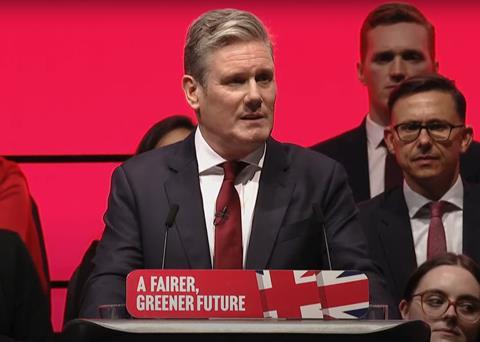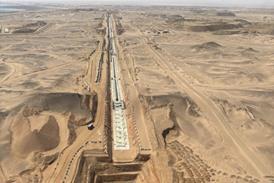“Great British Energy” envisaged to be on the same scale as French energy giant EDF
Labour would set up a publicly owned energy company if it wins the next election, party leader Keir Starmer has announced.
“Great British Energy” would be created within the first year of a Labour government and would fund green energy projects around the country to boost domestic energy security.
The aim is for the company to work with independent firms and eventually reach a comparable scale to French energy giant EDF, according to reports.
Starmer promised to “take advantage of the opportunities in clean British power” in his big policy reveal in his speech to Labour’s conference in Liverpool.
He said the approach was “right for jobs, right for growth and right for energy independence from tyrants like Putin.”

Starmer also confirmed his plan for all of the UK’s electricity to be generated by renewable and nuclear power by 2030.
He said the policy, first trailed at the weekend, would turn the UK into a “green growth superpower” by doubling onshore wind, tripling solar power and quadrupling offshore wind.
A Labour government would also invest in tidal, hydrogen and nuclear schemes across the UK, while backing carbon capture projects, green steel production, renewable ports and gigafactories.
“Driving the plan forward is a goal that would put us ahead of any major economy in the world,” he said, adding it would need to be a “huge national effort” which would get underway within the first 100 days after a general election.
Other policies announced during the speech included a goal to boost UK home ownership from 63% to 70%.
Starmer said Labour would do this by giving first time buyers first refusal on new developments and setting up a new mortgage guarantee scheme for first time buyers.
He also repeated a pledge first announced last year to spend £60bn on retrofitting 19 million homes to increase energy efficiency.
Starmer’s speech comes a day after a poll by YouGov put the party 17% ahead of the Conservative party, the largest lead in more than two decades.
















No comments yet